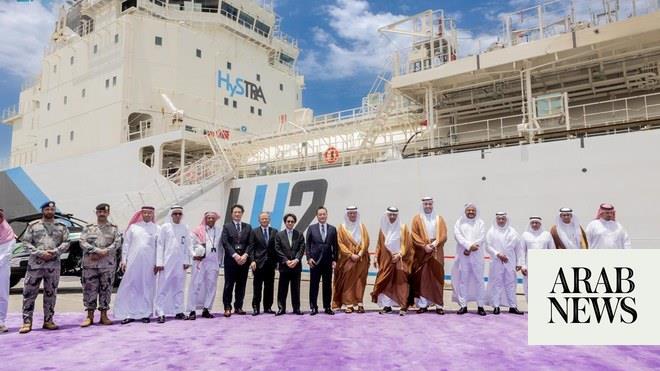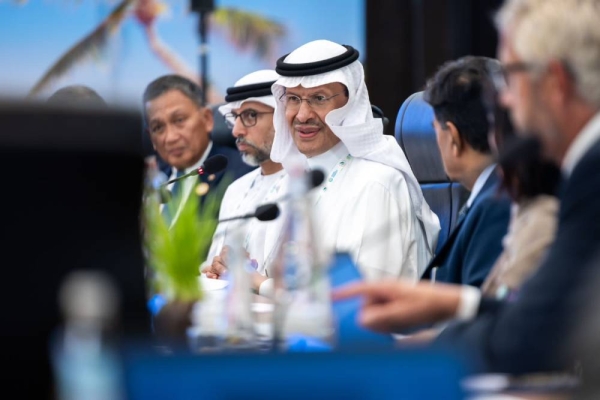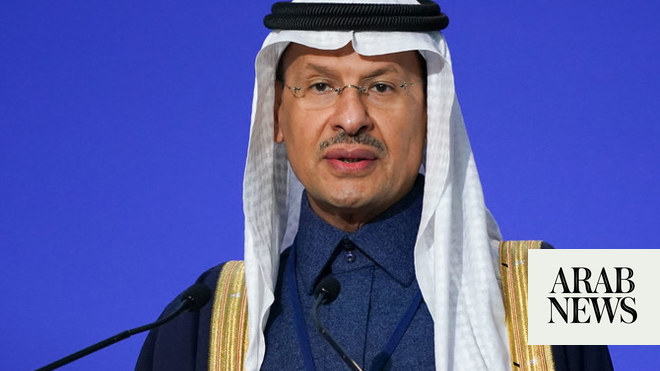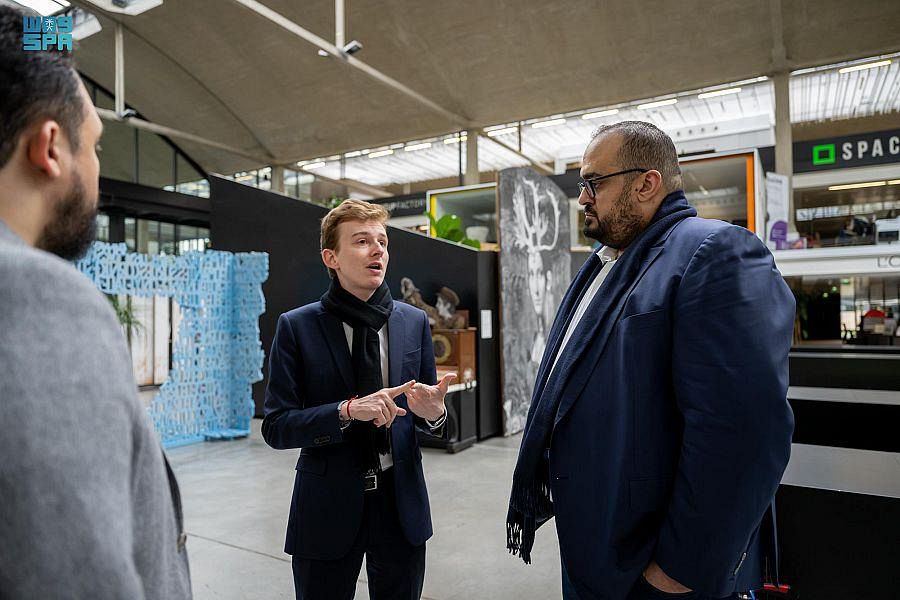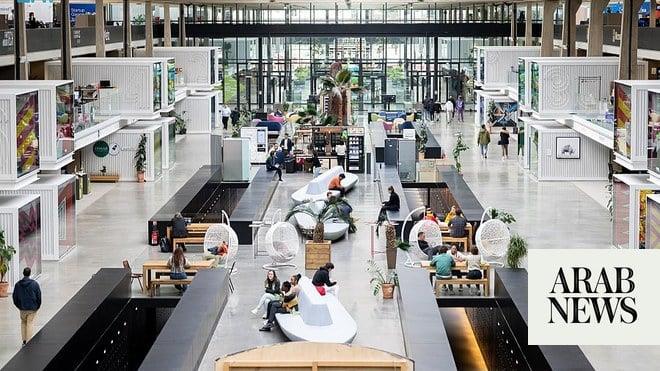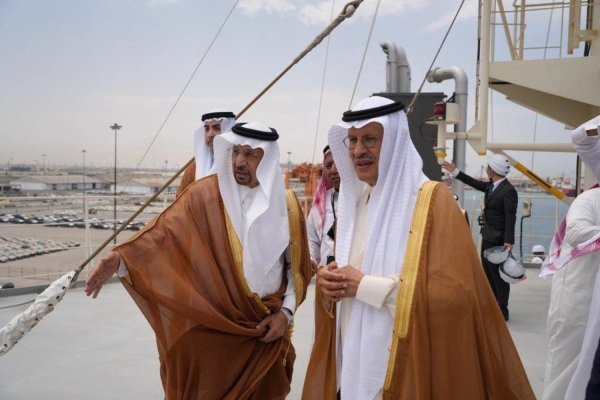
Saudi Minister of Energy Prince Abdulaziz bin Salman made a visit to the world’s first liquefied hydrogen carrier at the Jeddah Islamic Port on Wednesday. He watched the functioning of the giant Japanese ship
Suiso Frontier.
During the visit, Prince Abdulaziz was accompanied by Minister of Investment Eng. Khaled Al-Falih, Assistant Minister of Transport and Logistics Ahmed Al-Hassan, and the Japanese Consul General in Jeddah Izuru Shimura. The ministers were briefed on the innovative technologies that were used by the Japanese ship manufacturer Kawasaki Heavy Industries (KHI) in building the carrier Suiso Frontier. Saudi Arabia has focused on hydrogen production as part of its plans to become global leader in the clean hydrogen production and export sector.
The ship arrived at the port on the occasion of the official visit of Japanese Prime Minister Fumio Kishida to Saudi Arabia recently, of which the main mission was to introduce Japanese technology. It also paved the way for societies that will use hydrogen (clean energy), to cooperate with the company, to transport large quantities of hydrogen at a low cost through its tankers that it developed and would support its distribution. This is within the framework of its efforts to establish global supply chains on a large-scale, fully commercial using it as a preferred carrier.
The ship was built and developed with the support of the Japanese government to transport large quantities of liquefied hydrogen by sea. It is 116 meters long, 19 meters wide, and carries a double tank with a capacity of 1,250 cubic meters to retain hydrogen and maintain it at a temperature of -253 degrees Celsius.
The ship’s arrival comes within the framework of supporting the efforts made by Saudi Arabia to stimulate the green hydrogen economy, and to enhance its global leadership in the energy sector. It is also to confirm the high readiness of its ports to receive this type of ship, which dedicates its position as a global logistics center, and confirms the high competitive capabilities possessed by the Jeddah Islamic Port and its role in supporting the logistical system.
It is noteworthy that the company successfully completed the first shipment and transportation of liquefied hydrogen from Australia to Japan in February 2022, and stressed the need to use technology to transport large quantities of hydrogen efficiently and safely, and to benefit from it as a viable next-generation energy.
Communities depend mostly on energy such as petroleum or natural gas, which causes a serious environmental problem represented in global warming and the risk of depleting natural resources. To avoid these effects, it is essential to invest in alternative sources such as hydrogen energy to secure a stable supply of energy and preserve the global environment.
"Ultimate clean energy" is the name given to hydrogen, and it can be used like petroleum as a fuel to operate cars, and like natural gas to generate electricity. What distinguishes hydrogen is that it does not emit carbon dioxide when it is burned to produce energy, unlike fossil fuels.
Kawasaki built the first LNG carriers in Japan and Asia in 1981 and has since become a leader in refrigerated technology for marine transportation. More than 40 years later, it built the world’s first liquefied hydrogen carrier, with an upgraded system to contain pressurized refrigerated cargo specifically for LH 2, and a carrier design based on safety requirements approved by the International Maritime Organization. Suiso Frontier carried from Australia to Japan its first cargo in February 2022. The 8,000 tonnes ship can transport large quantities of LH2 over long distances by sea.
It is noteworthy that Prince Abdulaziz bin Salman had recently signed a memorandum of understanding with Minister of Transport and Logistics Eng. Saleh Al-Jasser with the aim of redoubling efforts towards reducing carbon emissions in the railway sector, promoting the use of green hydrogen applications in transportation paths, and employing modern technologies to build safe, sustainable and environmentally friendly transport systems in accordance with the goals of Saudi Vision 2030.




